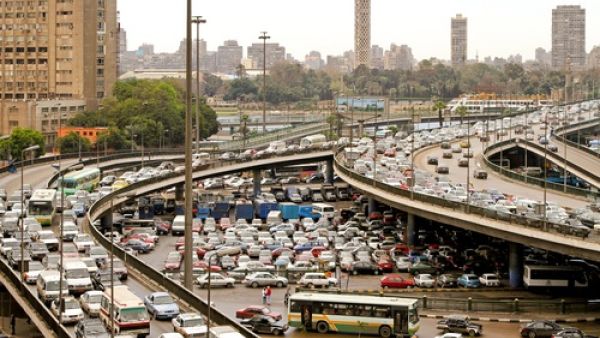All these vehicles create a – simply put – insane traffic situation. Planning a meeting at a specific time in Beirut is a virtual impossibility as you may arrive one hour early, late – or not at all.
Every day some 250,000 cars make the commute into Beirut, most of them jammed onto the north-south artery that connects the capital to the northern cities of Tripoli and Jounieh, and Saida and Tyre in the south. According to a Harvard study, the traffic jams causes $2 billion per year in lost productivity.
With a previous comprehensive Greater Beirut Transport Plan dead, public transportation is unlikely to solve the Lebanese traffic problem anytime soon. But small scale solutions are being discussed, like expanding the country’s system of so called “service cars” – a cheap cross between bus and taxi where passengers hail the car and are accepted depending on whether other passengers are already heading in the same direction.
“The great thing about this service is it increases vehicle occupancy…but it follows fixed routes so passengers know where the trip starts and ends, and there should only be specific areas for passenger stops, which again needs enforcement,” Dr. Tammam Nakkash, a managing partner at TEAM International, an engineering and management consultancy, told Next City.
Another solution is constructing new roads. The Fouad Boutros Highway – a 13-kilometer, four-lane highway that will run through the northeastern Ashrafiyeh area – is set for approval this summer. According to Beirut Mayor Bilal Hamad, it will reduce traffic by opening up the northern entrance to the city and the inner streets of the neighborhood.
But this solution has received a lot of negative reactions with some 3,000 people having signed an online petition against the development. The argument that it will increase traffic and destroy some 30 local heritage buildings, cutting through some of the city’s rare green spaces and groves.
“You don’t achieve anything by expanding highways except putting more people on them,” says Dr. Nakkash.








